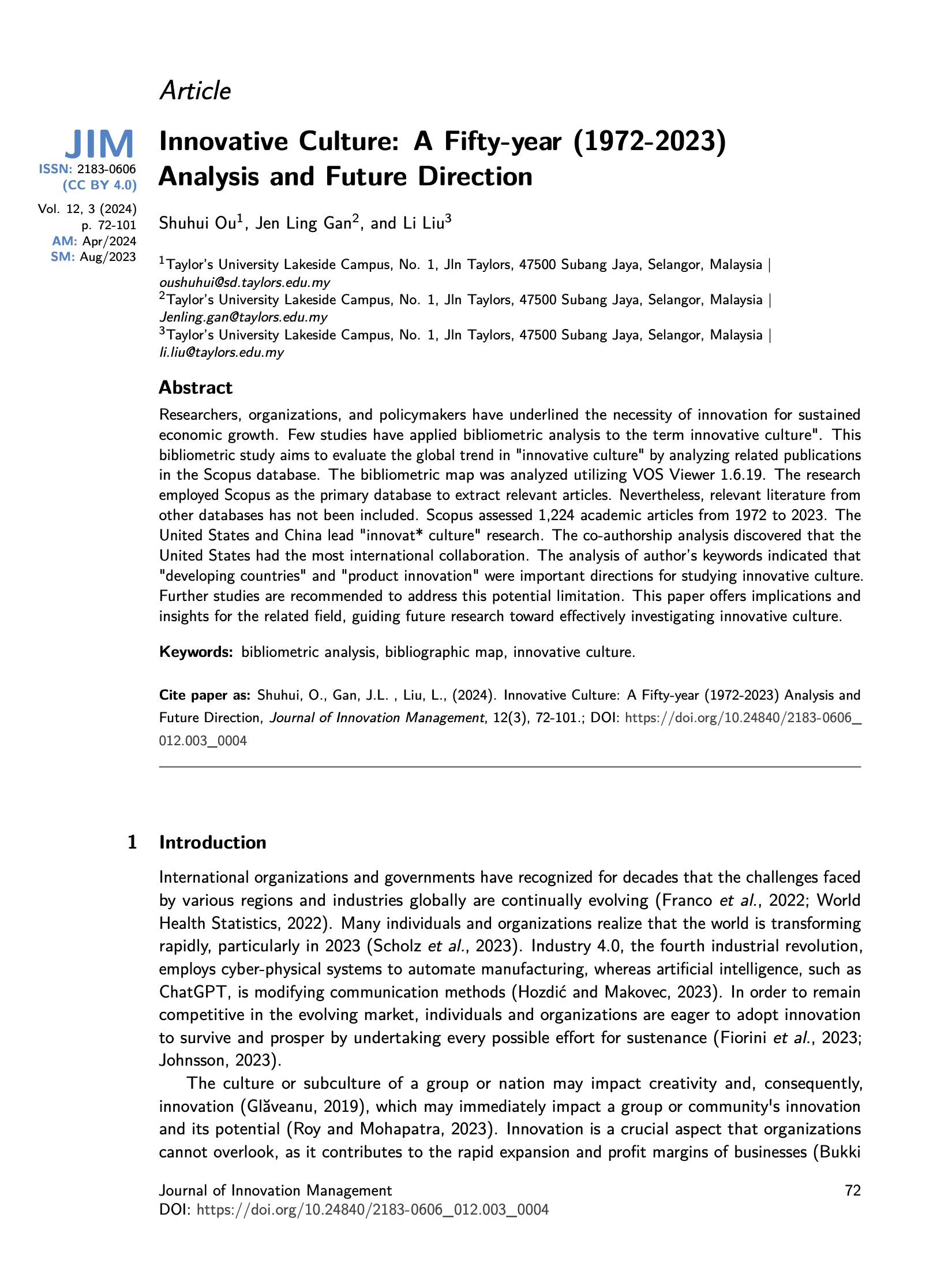Innovative Culture: A Fifty-year (1972-2023) Analysis and Future Direction
Main Article Content
Abstract
Researchers, organizations, and policymakers have underlined the necessity of innovation for sustained economic growth. Few studies have applied bibliometric analysis to the term "innovative culture". This bibliometric study aims to evaluate the global trend in "innovative culture" by analyzing related publications in the Scopus database. The bibliometric map was analyzed utilizing VOS Viewer 1.6.19. The research employed Scopus as the primary database to extract relevant articles. Nevertheless, relevant literature from other databases has not been included. Scopus assessed 1,224 academic articles from 1972 to 2023. The United States and China lead "innovat* culture" research. The co-authorship analysis discovered that the United States had the most international collaboration. The analysis of author's keywords indicated that "developing countries" and "product innovation" were important directions for studying innovative culture. Further studies are recommended to address this potential limitation. This paper offers implications and insights for the related field, guiding future research toward effectively investigating innovative culture.
Article Details
Authors who publish with this journal agree to the following terms:
- Authors retain copyright and grant the journal right of first publication with the work simultaneously licensed under a Creative Commons Attribution License that allows others to share the work with an acknowledgement of the work's authorship and initial publication in this journal.
- Authors are able to enter into separate, additional contractual arrangements for the non-exclusive distribution of the journal's published version of the work (e.g., post it to an institutional repository or publish it in a book), with an acknowledgement of its initial publication in this journal.
- Authors are permitted and encouraged to post their work online (e.g., in institutional repositories or on their website) prior to and during the submission process, as it can lead to productive exchanges, as well as earlier and greater citation of published work (See The Effect of Open Access).

